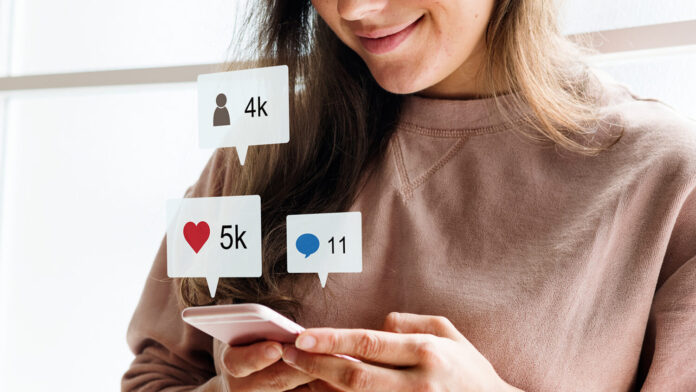The idea of stepping away from the constant stream of updates and notifications feels like deciding to leave a party early—what if something exciting happens after you’re gone? Yet, with burnout on the rise, taking a break might be exactly what you need.
Let’s figure out if life without your apps is doable, and how you can make it work.
Key Points:
- Why are our screens so addictive?
- How does detoxing improve mental health?
- Practical ways to step away without feeling lost.
- What to do with your newfound time.
- Long-term benefits of reducing screen dependency.
- Tips for balancing online and offline life.
Why Are We So Hooked?
Ever caught yourself reflexively reaching for your phone during a quiet moment? Apps are designed to hold your attention and keep you coming back for more. They’re engineered to be addictive, with every like or comment feeding your brain the same dopamine rush that makes gambling so irresistible.
There’s also the fear of missing out. You scroll because everyone else is scrolling, and the thought of being out of the loop is unbearable. It’s hard to resist, especially when everything from news to memes feels urgent. But let’s not forget, staying up-to-date doesn’t mean you need to be chained to your screen. Curious about what’s trending right now? Check out the latest news to stay in the loop.
What Happens When You Step Away?

Think of your mind as a cluttered closet. Every notification, DM, or post is like shoving another item inside. Detoxing clears the mess, leaving you with space to think, breathe, and focus.
People who reduce screen time often report sleeping better, feeling calmer, and being more productive. Relationships improve too. Without constant distractions, you engage in deeper conversations and spend more quality time with loved ones. Even solo activities, like reading or journaling, become more fulfilling.
The first few days might feel strange—almost like breaking a habit—but the clarity and peace that follow make it worthwhile.
Steps to Start Your Break
If the thought of going offline makes you sweat, don’t panic. Start small. You don’t need to delete your accounts overnight. Try these steps instead:
- Set phone-free zones ─ Make your bedroom or dining table a no-phone zone.
- Turn off notifications ─ Most of your alerts aren’t urgent. Silence them and regain your focus.
- Schedule check-ins ─ Pick two or three times a day to browse, then stop.
- Use tracking apps ─ Apps like Screen Time or Digital Wellbeing show how much time you spend online. The numbers might shock you, but awareness is the first step toward change.
- Find a buddy ─ Share your detox goals with a friend and hold each other accountable.
These small changes ease you into a healthier relationship with your screen.
The Mental Health Boost You’ll Feel

One of the biggest benefits of stepping away from screens is the impact on your mental health. Constant comparisons with influencers, celebrities, or even friends can chip away at self-esteem. Scrolling through highlight reels makes it easy to forget that no one’s life is perfect.
A detox removes that noise. You stop worrying about likes or views and focus on what really matters. You also get a break from the doom and gloom of news cycles, giving your mind time to rest. Anxiety decreases, and your outlook brightens.
Many find they’re more present in daily life and better able to handle stress. It’s not magic; it’s what happens when your brain isn’t overstimulated all the time.
What to Do With Your Newfound Time
Stepping away from your screen leaves gaps in your day. The good news? You can fill that time with meaningful activities. Here are some ideas:
- Explore hobbies ─ Always wanted to learn guitar, bake a cake from scratch, or paint? Now’s your chance.
- Get outside ─ Nature has a way of clearing the mind. Even a 15-minute walk can lift your mood.
- Connect in person ─ Call a friend or meet up for coffee. Face-to-face interactions build stronger bonds.
- Start journaling ─ Writing down your thoughts clears mental clutter and helps you process emotions.
Without the constant pull of your phone, life feels richer. You notice details you overlooked before, like how the sunset paints the sky or how your coffee smells first thing in the morning.
Long-Term Benefits

The advantages of cutting back don’t stop after a week. Over time, you’ll notice big changes.
- Better focus ─ Multitasking becomes easier when you’re not jumping between apps.
- Improved sleep ─ Blue light disrupts your sleep cycle. Less screen time means deeper rest.
- Higher productivity ─ With fewer distractions, you’ll finally cross items off your to-do list.
- Stronger relationships ─ You’ll spend more quality time with loved ones.
Your overall happiness increases too. The world seems less overwhelming when you’re not plugged into every minor drama.
Balancing Online and Offline Life
A detox doesn’t mean abandoning technology forever. It’s about finding balance. Use your phone as a tool, not a crutch. Need inspiration? Try these tips:
- Schedule screen-free days ─ Pick one day a week to go offline completely.
- Curate your feed ─ Unfollow accounts that don’t add value or positivity.
- Set priorities ─ Decide what’s most important in your life and let that guide your habits.
Balance takes effort, but the rewards are worth it. You’ll control your screen time instead of letting it control you.
Common Excuses for Staying Connected

You might think, “But I need my phone for work” or “What if something important happens?” Those are valid concerns, but they don’t mean you can’t take breaks.
- For work, set clear boundaries. Work hours don’t need to stretch into every waking moment.
- For emergencies, let loved ones know how to reach you without relying on DMs.
Most fears about disconnecting come down to habit, not necessity. Challenge those habits, and you’ll see how much freedom you gain.
Tips for a More Intentional Online Presence
If a full detox feels too extreme, focus on being more intentional. Here’s how:
- Audit your accounts ─ Review who you follow and why. Stick to accounts that bring joy or knowledge.
- Limit passive scrolling ─ If you’re online, engage actively. Comment, share, or create rather than consume mindlessly.
- Plan your usage ─ Set specific times for apps instead of opening them whenever boredom strikes.
Intentional habits give you the best of both worlds—connection without the chaos.
Final Thoughts
Walking away from your apps, even temporarily, feels like a big leap. But the benefits outweigh the initial discomfort. You’ll rediscover how fulfilling life can be when it isn’t filtered through a screen.
Start small. Give yourself grace. And remember, it’s not about quitting technology altogether—it’s about taking control of your time. So, can you survive a social media detox? The better question might be, how much better will life feel once you do?









